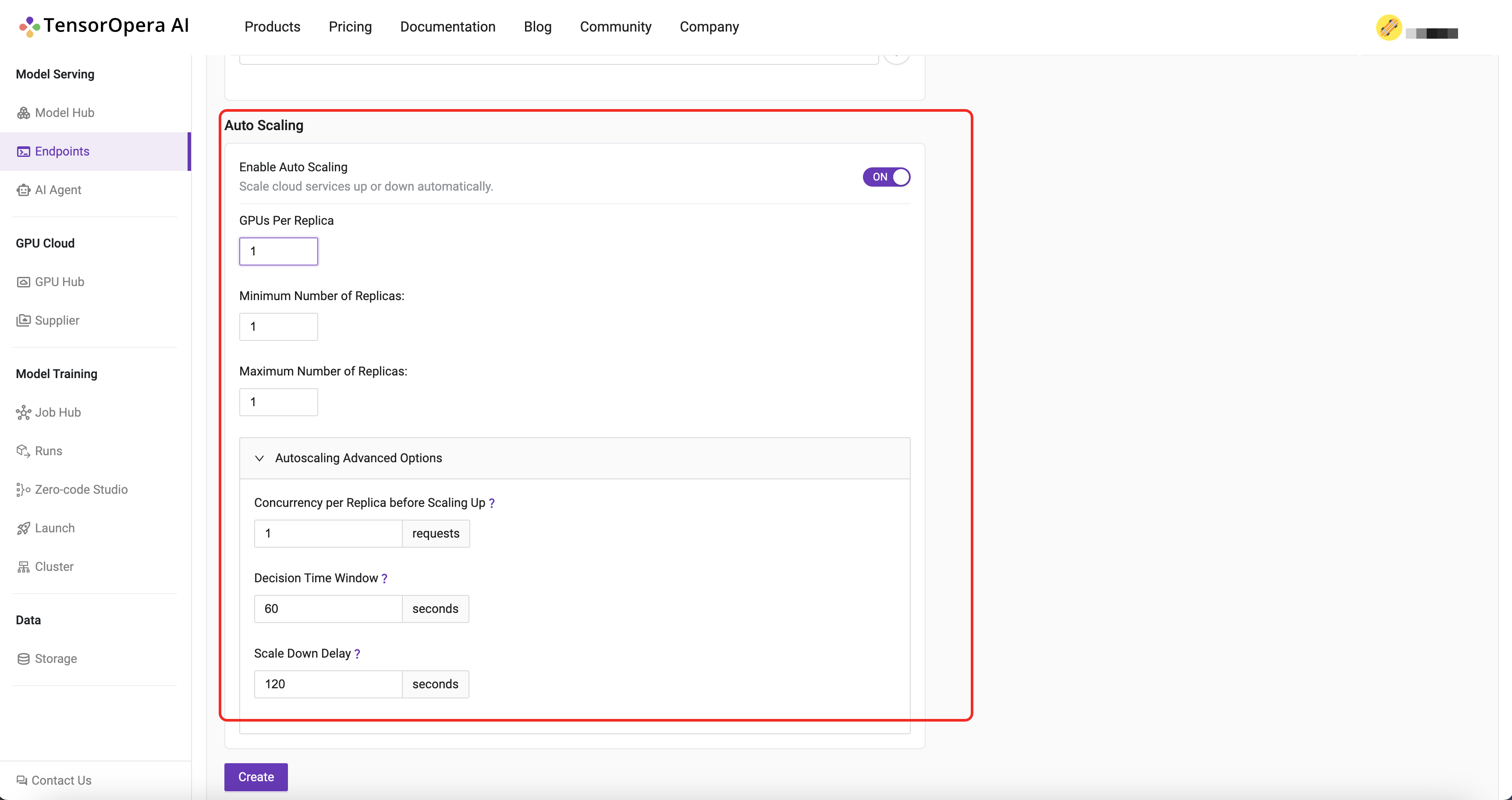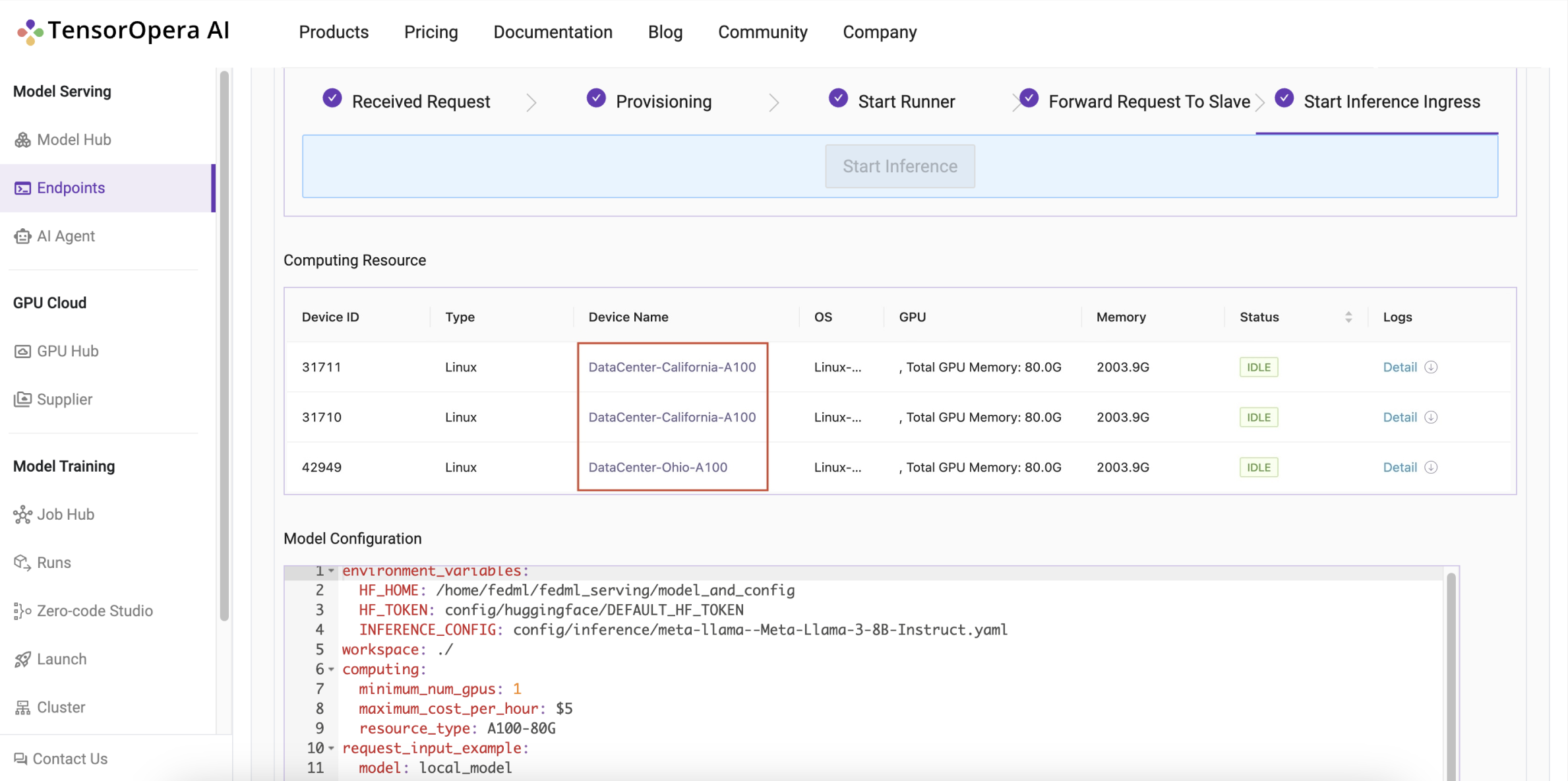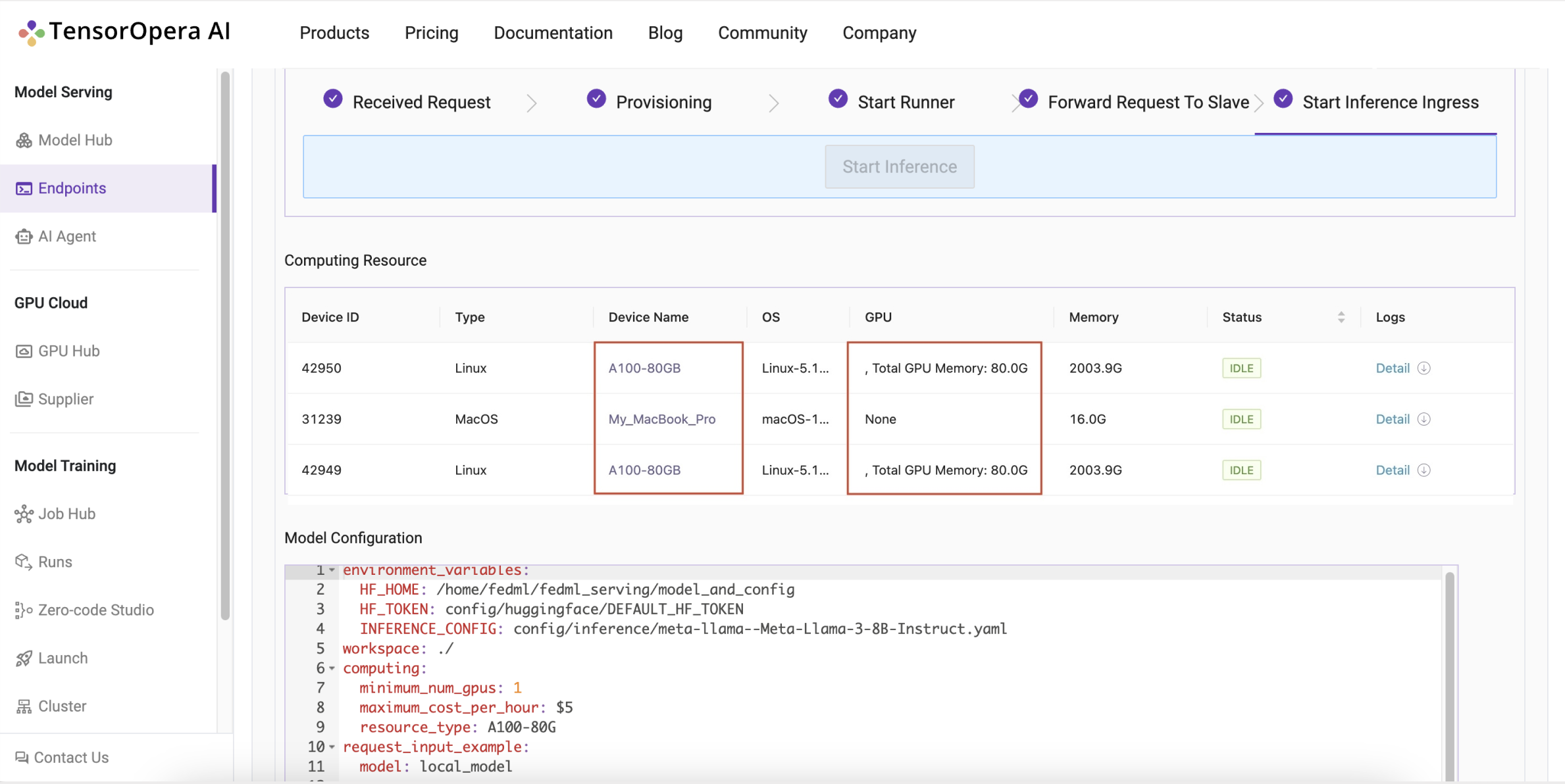Advanced Features
This page will introduce some advanced features of TensorOpera®Deploy. Including
- Autoscaling and Fail-over
- Geo-distributed Model Deployment
- Heterogeneity Model Deployment
- Multiple Return Type Support
Autoscaling
TensorOpera®Deploy can automatically scale up and down the number of replicas of the model deployment based on the QPS.
When you deploy an endpoint, you can enable the autoscale feature by setting the
min_replicasandmax_replicasto tell the autoscaler the range of replicas.Concurrency per Replica before Scaling Upto tell the autoscaler the threshold to scale out in.Decision Time Windowto indicate the time window to calculate the QPS.Scale Down Delayto indicate the delay time for scale down the replicas.

Geo-distributed Model Deployment
Without building and configuring a complex Kubernetes Cluster. TensorOpera®Deploy can deploy models to nodes located at multiple regions and manage the traffic routing automatically.

Heterogeneity Model Deployment
TensorOpera®Deploy can deploy models to different types of devices, such as CPU, GPU, TPU, etc. Whether it is a single Macbook or a power A100, they can be connected together in an easy manner.

Multiple Return Type Support
Streaming Response
The following code example can be found at:
https://github.com/FedML-AI/FedML/blob/master/python/examples/deploy/streaming_response/src/main_entry.py#L12
def predict(self, *args, **kwargs):
return {"my_output": "example output"}
async def async_predict(self, *args):
return StreamingResponse(self._async_predict(*args))
async def _async_predict(self, *args) -> AsyncGenerator[str, None]:
# This function can also return fastapi.responses.StreamingResponse directly
input_json = args[0]
question = input_json.get("text", "[Empty question]")
for i in range(5):
yield f"Answer for {question} is: {i + 1}\n\n"
await asyncio.sleep(1.0)
In this example, we have a predictor that print a number every 1 second. The core part is that, apart from the original
predict method, which return json obj as usual. If the user put "stream: true" in their request body.
e.g. curl -XPOST xxx -d '{"text": "my input ...", "stream": true}', then TensorOpera will automatically call the
async_predict. So, to implement this, you will need to override this class method. The code above is an example
returning a StreamingResponse, which take a AsyncGenerator as an input.
File Response
The following code example can be found at:
https://github.com/FedML-AI/FedML/blob/master/python/examples/deploy/stable_diffusion/src/inference_entry.py#L101
def predict(self, request: dict, header=None):
args = self.args
input_dict = request
prompt: str = input_dict.get("text", "").strip()
self.args.prompt = [prompt]
images, paths, pipeline_time = self.run_sd_xl_inference(warmup=False, verbose=args.verbose)
if len(prompt) == 0:
response_text = "<received empty input; no response generated.>"
else:
if header == "image/png":
return str(paths[0])
else:
with open(paths[0], "rb") as image_file:
encoded_string = base64.b64encode(image_file.read()).decode("utf-8")
return encoded_string
In this example, we have a predictor that generate a file to a local directory paths[0], here we have two ways to
return it to the requester. The first way is that, if the header of the request, if there exist Accept: image/png,
then TensorOpera framework will parse the string that predictor's return, take it as a local file path, and use
fastapi.responses.FileResponse to transfer this file to binary string and return it. The second way is that, if
requester do not include Accept: image/png in their header. Then TensorOpera framework will treat the return obj from the
predictor as a string, not file path. So in the user-level code, developer will need to transfer the file to base64
string and return.